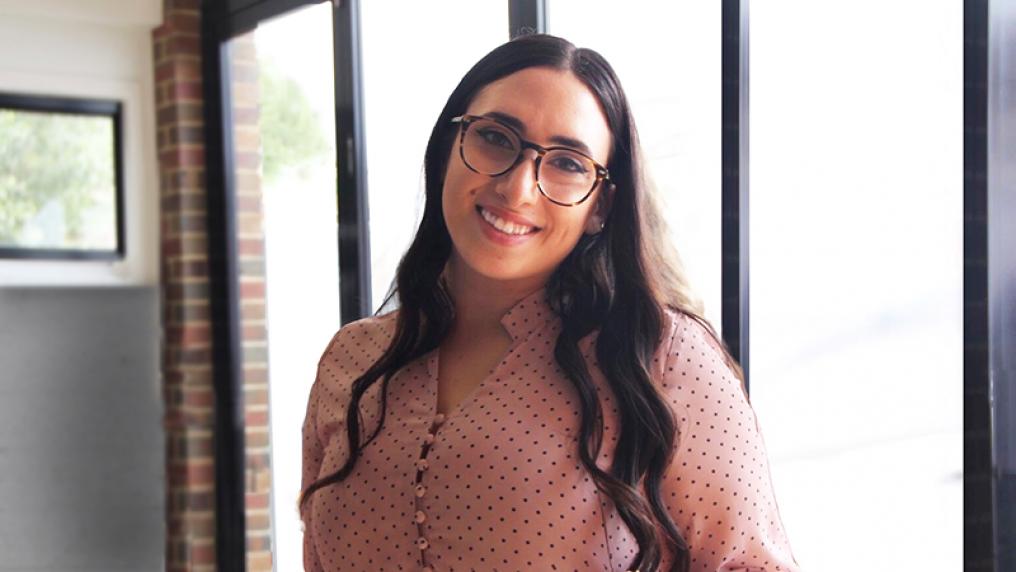Year 12 parents: How to support your child through exams, results & big decisions
For Year 12 students, the final months of high school can feel like an emotional rollercoaster, with exam pressure, ATAR results, and decisions about the future all piling up. It’s a time of intense focus for students, and equally stressful for parents supporting them.
As your child navigates the challenges of exams with their next steps front of mind – whether that’s further study, vocational training, entering the workforce (or all three, with our VU Block Model making all their future goals possible!) – as a parent, you play a vital role in helping them stay calm and confident.
We spoke with psychologist Frances Stutterd for practical advice on how to support your child through this high-pressure period and help them make informed decisions about their future. Read on for her top 5 tips.

1. Don't "back in my day" them
If you’ve been through Year 12, you know just how stressful and overwhelming it can be. But reminding your child of how tough it was "back in your day" won’t ease their burden. Today’s students face unique challenges, especially when juggling the pressures of exams, results, and making decisions about their future.
Plus, add in the remnants of a once-in-a-lifetime global pandemic event, and it's understandable that they would feel like they are going through a totally singular experience.
Psychologist Frances Stutterd explains:
Year 12 is notoriously stressful – but COVID-19 drove students away from the classroom and friends in a way that’s hard for adults to comprehend. Young people learn and grow so much from being together.
The end of school also usually coincides with certain rites of passage, which they’ve also missed. So if they’re out of sorts – that’s to be expected!
2. Keep communication open
Teenagers are often known for shutting out family when things get tough, especially during stressful times like Year 12 exams. They may feel pressured, micromanaged, or misunderstood, as they strive for more independence. Finding a low-pressure way to connect is key to offering them support.
Frances suggests:
Start a conversation. Offer your own feelings first, for example, ‘I’m feeling a bit stressed about all of this, how about you?’ or, ‘You seem a bit preoccupied, are you okay?’
It’s also essential to spend quality time together away from school-related topics, reinforcing the positive aspects of your relationship. Simple activities like walking the dog or watching TV can take the pressure off and open up the space for meaningful conversations.
Going for a walk together with the dog, shooting hoops, washing the dishes, even watching TV together: activities like these take the spotlight off them and make it easier to chat – about anything.

3. Know what signs to look out for
Frances highlights three key signs of stress to watch for in Year 12 students. If you notice any of these, it may be time to offer extra support – whether from you, a friend, or a professional:
- Physical signs: chest tightness, upset stomach, racing heart, or fatigue from lack of sleep.
- Mental signs: obsessive thinking or catastrophising (dwelling on worst-case scenarios).
- Behavioural signs: avoiding situations, withdrawing from others, or showing aggression or irritability.
4. Reduce the pressure
Adding extra expectations or interfering during Year 12 can increase stress rather than help. Instead, look for ways to reduce the pressure. Frances suggests rewarding milestones and encouraging regular breaks – especially time outdoors and away from screens, even for short periods:
When looking ahead to next year think of VU’s award-winning learning model – the VU Block Model – as the “less stress, more success” approach. Students complete just one subject at a time over four weeks (rather than the four subjects over 12 weeks at other universities) so they have greater focus, frequent feedback, and smaller classrooms with more support from teachers.
Plus, remind them it's okay if results don't go to plan. Before and after results are released, make sure your child knows that their ATAR does not define them or their future.
Regardless of their score, there are multiple pathways to reach their dream course – many of which will allow your child to get credits for past learning, and which can provide excellent preparation for further university study, and their career.
Plus, our VU Early Entry program can offer students peace of mind with a Conditional Offer* before they even sit their exams.
*Conditions apply, see our VU Early Entry webpage for full details.

5. Avoid the high-score preference trap
It’s a common misconception that students should ‘use up’ their ATAR score – applying for the course with the highest ATAR requirement possible.
But the most important question students should ask themselves is, what will I enjoy studying and doing as a career for at least the next few years?
VU Bachelor of Business graduate Emilia Ambrosio admits she initially chose a course just because it used up her ATAR.
